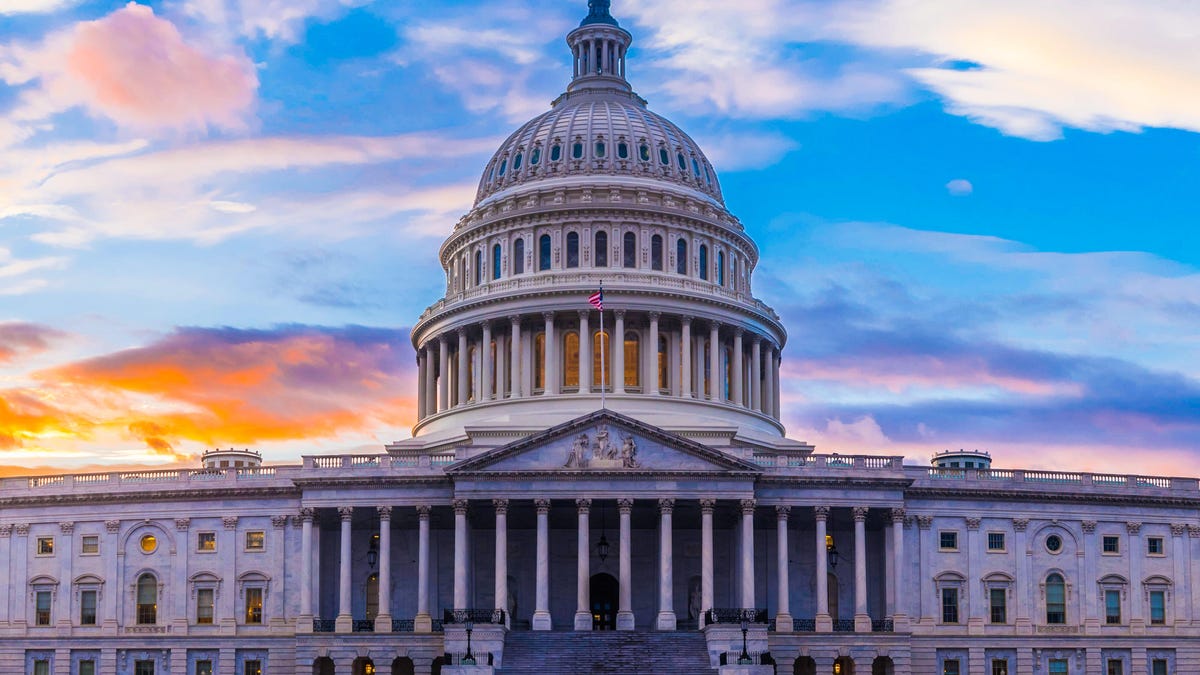House lawmakers argue to update antitrust laws to rein in tech giants
"Change is coming. Laws are coming."

House lawmakers held another tech antitrust hearing.
The dominance of Facebook, Google, Apple and Amazon was again in the congressional spotlight on Thursday, as lawmakers discussed ways to reform antitrust laws to rein in Big Tech.
At a hearing before a House Judiciary antitrust subcommittee, the lawmakers examined the "gatekeeper power" of giant Silicon Valley companies -- the first in a series of three hearings aimed at modernizing antitrust laws in the digital era.
"Mark my words," Rep. David Cicilline, a Democrat from Rhode Island, said to kick off the hearing. "Change is coming. Laws are coming."
Thursday's event was the subcommittee's first Big Tech antitrust hearing of the year, following a marquee hearing in July when the CEOs of Facebook, Google, Amazon and Apple appeared virtually before the group. That gathering was the culmination of a more-than-yearlong investigation by the subcommittee, led by Cicilline, into the market dominance of the tech giants.
In that time, the subcommittee gathered more than 1.3 million documents from the tech giants, competitors and antitrust enforcement agencies for the investigation. Following the hearing, the subcommittee released a 449-page report accusing the four companies of "abuses of monopoly power."
Thursday's hearing had less star power than the July event, gathering industry experts, academics and leaders from smaller tech companies, instead of the Big Tech CEOs. Though more low-key, the hearing underscored the ongoing interest that lawmakers have in reining in big tech, suggesting the effort hasn't ceased since the Biden administration took power last month.
All four of the Big Tech companies are in the antitrust crosshairs from lawmakers. With Facebook, regulators are looking into the company's acquisitions of competitors like Instagram and WhatsApp. For Amazon, Congress has largely focused on the company's private-label business, which sells Amazon brands of clothing, food and consumer goods like batteries and diapers. Apple has seen scrutiny over the cut it takes from software developers on its app store. For Google, regulators are focused mainly on the search giant's dominance in digital advertising.
Some of the witnesses on Thursday argued for stronger "interoperability" practices from the tech giants, so consumers could more easily choose services from smaller platforms as Big Tech faces scandals related to data privacy. One example would be Facebook opening up users' friend lists to rivals, so people could use alternative social networks without losing touch with existing contacts, said Charlotte Slaiman, competition policy director at the nonprofit Public Knowledge.
"Users are already frustrated by not having their privacy protected on these platforms," Slaiman said. "They might like to leave, but they feel locked in."
Another witness, Hal Singer of the firm Econ One, suggested setting up a tribunal so entrepreneurs could argue their cases when they feel major tech platforms have discriminated against rival products in favor of their own. The entrepreneur could argue for damages and other relief.
The second in the trio of hearings, which will take place in "a couple of weeks," will focus on the "crisis of local journalism" and the impact of the tech platforms on the news business, Cicilline said. Facebook and Google have been embroiled in a tense situation in Australia, a country that's proposed a bill that would require platforms to pay publishers for posting their content. In response to the proposal, Google threatened to pull its search engine from Australia, and Facebook disabled news sharing in the country for several days.
The CEOs of Facebook and Google face other pressure from Congress. Mark Zuckerberg and Sundar Pichai, as well as Twitter CEO Jack Dorsey, have been called to testify before the House Energy and Commerce Committee on March 25. The topic of the hearing will be misinformation on online platforms.

